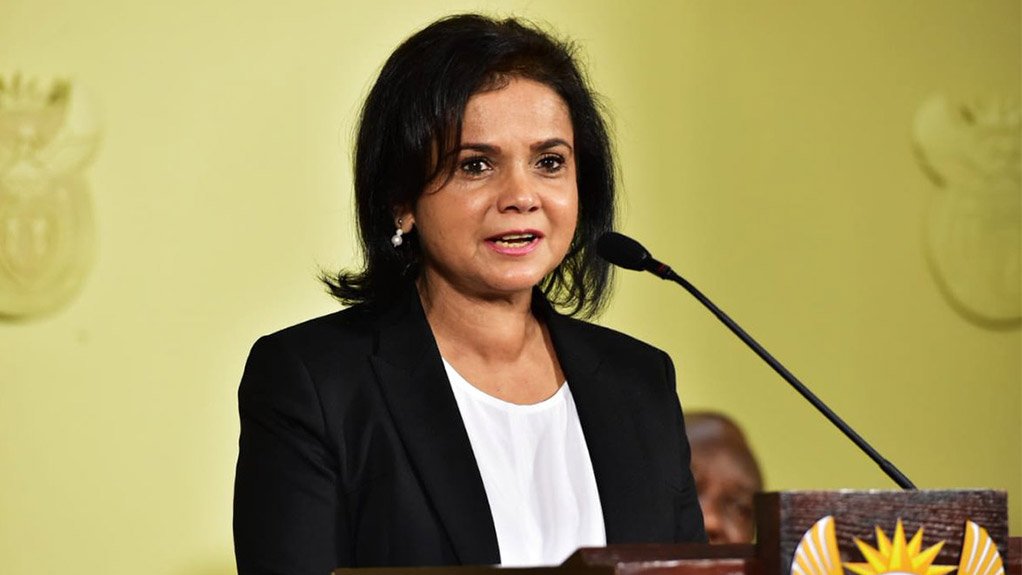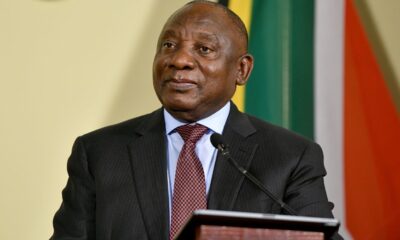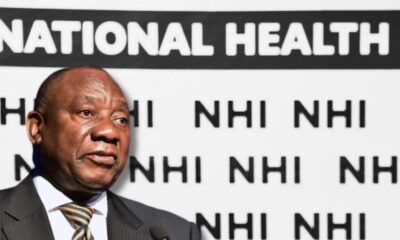News
Concerns Grow Over NPA’s Future as Batohi Nears End of Term

The End of an Era or Just a Repeat?
With Advocate Shamila Batohi’s term as National Director of Public Prosecutions (NDPP) ending in January 2026, South Africa faces a critical turning point in its ongoing battle against state capture and corruption.
President Cyril Ramaphosa has appointed a panel to find her successor, promising an “open and transparent process.” But while the search for new leadership begins, experts warn that swapping out names won’t fix what many believe is a deeply compromised institution.
A Promise That Faded
When Batohi took office in 2019, her appointment was hailed as a moment of hope. After years of political interference, South Africans wanted an NDPP who would restore faith in the National Prosecuting Authority (NPA) and bring those responsible for state capture to justice.
Six years later, that optimism has dimmed. Despite several investigations, few major state capture figures have been convicted. The NPA continues to face allegations of incompetence, infighting, and corruption from within its own ranks.
Legal expert Richard Spoor has described the organisation’s condition as one marked by “a lack of leadership, inadequate resources, and an inability to retain skilled staff.” He pointed to the failed Moroadi Cholota extradition, where procedural errors led to charges being dropped, as a glaring example of how the NPA continues to falter on high-profile cases.
Infiltration and Internal Battles
Earlier this year, Batohi herself acknowledged that elements within the NPA had been “infiltrated.” Although she later clarified that her concern referred to individual prosecutors working with criminal networks, her remarks echoed what insiders have long suspected: the rot runs deep.
Sources within the NPA confirmed cases of prosecutors tampering with evidence, fabricating documents, and even pressuring witnesses, accusations that cut to the heart of South Africa’s justice system.
Civil society figures like Hennie van Vuuren from Open Secrets argue that Batohi should take decisive action if senior officials are implicated. “If the President fails to act, the NDPP should alert the public so that the executive can be held accountable,” he said.
Political Tensions Around the Succession
The appointment of Ramaphosa’s selection panel has already sparked criticism. The Democratic Alliance’s Glynnis Breytenbach, herself a former prosecutor, questioned the panel’s composition, arguing that it lacks members with criminal justice experience.
“How can a panel devoid of prosecutorial expertise nominate candidates for the most important prosecutorial position in South Africa?” she asked.
Ramaphosa’s spokesperson, Vincent Magwenya, dismissed the DA’s concerns as routine political posturing, reiterating that the President has full confidence in the panel’s credibility.
The Deeper Crisis
Analysts like Dr John Molepo argue that replacing Batohi will do little if the NPA’s structural and political challenges remain unaddressed. He believes the institution is still perceived as being used selectively against political figures who stand in the way of certain interests.
Molepo also criticised the lack of accountability inside the NPA, saying that ongoing failures should have been met with “heads rolling” long ago.
Meanwhile, Corruption Watch’s Karam Singh says South Africa’s fight against state capture can’t succeed without reforming both the NPA and the police. “We need to restore trust that these institutions can act without fear, favour, or prejudice,” he said.
Beyond Batohi: What’s Next for the NPA?
The NPA was meant to be at the centre of South Africa’s post–state capture recovery, a symbol that accountability had finally arrived. Yet, as the country inches closer to 2026, public confidence remains fragile.
The danger now, experts warn, is that Ramaphosa’s government focuses on optics rather than outcomes. Replacing Batohi without addressing the corruption, resource shortages, and leadership void inside the NPA could simply recycle the same problems under a new name.
If South Africa truly wants to turn the page on state capture, this appointment must be more than symbolic. It must signal a real commitment to rebuilding justice from the ground up.
Also read: Hawks Investigate R158 Million Social Grant Theft at Post Office and Postbank
Follow Joburg ETC on Facebook, Twitter, TikT
For more News in Johannesburg, visit joburgetc.com
Source: IOL
Featured Image: Polity.org



























